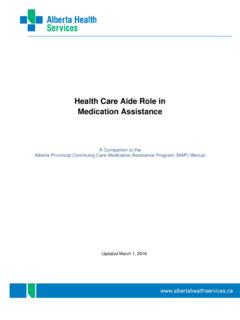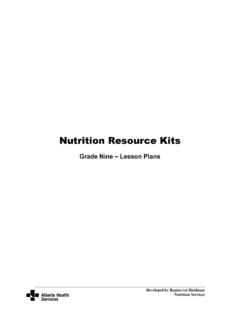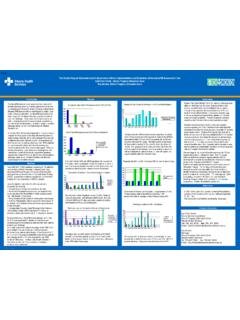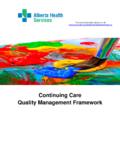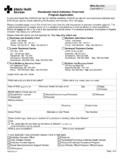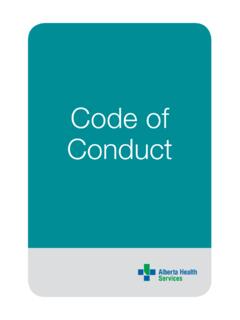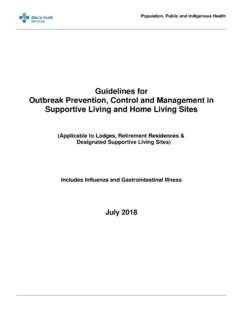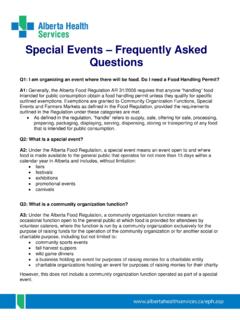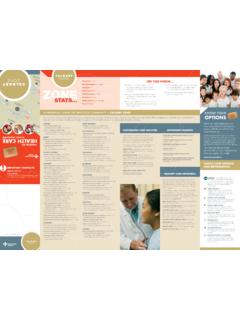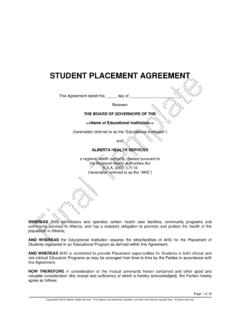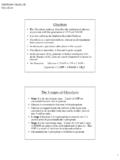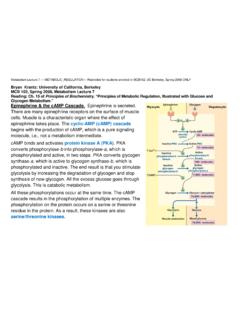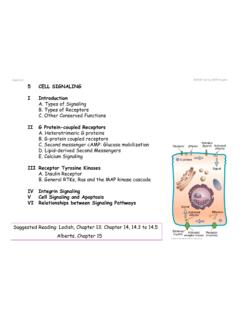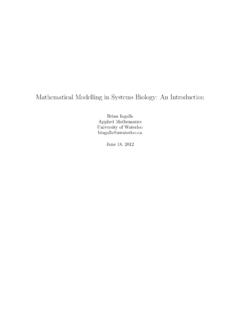Transcription of Nutrition Guideline: Vitamins and Minerals
1 Nutrition Guideline For Professional Reference Only Vitamins and Minerals Applicable to: Nurses, Physicians and Other Health Professionals Recommendations Most individuals can meet their vitamin and mineral needs by healthy eating using Canada's Food Guide. The following strategies can help an individual achieve appropriate intakes of Vitamins and Minerals : Choosing a variety of foods from all four food groups of Canada's Food Guide every day and eating the recommended number of servings from each food group every day.
2 Choosing meals that include at least three of the four food groups. For adults: Eating three regular meals, and snacks if needed, throughout the day. For children: Providing three regular meals and two to three snacks every day. Provide snacks that include foods from Canada's Food Guide. Considering taking a vitamin or mineral supplement if you are not meeting the recommended number of servings of each food group from Canada's Food Guide. Ask for advice from your physician or health care provider. The following people need to take vitamin or mineral supplements: o Women who are pregnant, breastfeeding, or who could become pregnant, need a multivitamin containing folic acid and vitamin B12 every day.
3 O Pregnant women need to ensure that their multivitamin contains iron. o Refer to the guideline Calcium and Vitamin D for recommendations about vitamin D. supplementation Recognizing that single-nutrient supplements carry a higher risk of adverse reactions. Seek referral to a physician or Registered Dietitian if you are considering taking one. Notifying your physician or Registered Dietitian if you take a multivitamin-mineral, herbal or any other type of Nutrition supplement. Asking your physician for a referral to a Registered Dietitian if you have questions about Nutrition supplements or are wondering if you need one.
4 Note: For recommendations and discussion about calcium and vitamin D refer to the Guideline: Calcium and Vitamin D. Health Benefits Vitamins and Minerals are essential for many biochemical and physiologic functions in our bodies. Vitamins and Minerals do not provide calories; rather, they work with each other and with other essential nutrients (carbohydrates, protein, fats) to start (or trigger ) many chemical processes for growth, maintenance of well-being, and possibly, prevention of Appropriate intake of Vitamins and Minerals : Helps maintain normal metabolic functions ( energy production, hormone synthesis).
5 1,2,3. Prevents or repairs damage to cells and tissues. Promotes optimal growth and development in children and May decrease the risk of nutrient-related chronic diseases, such as: Type 2 diabetes mellitus, obesity, rickets, osteoporosis, hypertension, cardiovascular diseases (CVD) and certain ,2. In certain cases, an individual may need to take a specific mineral and vitamin supplement if he/she is unable to obtain it from food. January 2013 Nutrition Guideline Page Vitamins and Minerals Nutrition Guideline For Professional Reference Only Vitamins and Minerals Applicable to: Nurses, Physicians and Other Health Professionals Key Questions What is a vitamin?
6 Vitamins are fat-soluble or water-soluble organic compounds essential for normal biochemical and physiological functions. Vitamins are multi-functional. They may serve as structural components in the body, act as co- enzymes in multiple metabolic pathways, and/or act as ,2,5. For optimal health, we require the following 13 Vitamins :5. Water-soluble Vitamins : Fat-soluble Vitamins : Thiamin (B1)* Vitamin A (retinol; beta-carotene)*. Riboflavin (B2)* Vitamin D*. Niacin (B3)* Vitamin E*. Vitamin B6 Vitamin K*. B12*. Biotin Folate (folic acid)*.
7 Pantothenic acid Vitamin C (ascorbic acid)*. * Of the Vitamins , the ones indicated (*) are a common concern throughout life and will be discussed in this guideline. What is a mineral? Minerals are inorganic elements that are essential to body functions such as maintenance of acid-base balance, normal hemoglobin levels and osmotic pressure. Minerals are components of Vitamins , hormones, enzymes and many stable complexes in bone and ,2,5. For optimal health, we require the following 15 Minerals :5. Calcium* Iodine Phosphorus*.
8 Chloride Iron* Potassium*. Chromium Magnesium* Selenium Copper Manganese Sodium*. Fluoride Molybdenum Zinc*. * Of the Minerals listed, the ones indicated (*) are of concern throughout the life cycle; these ones will be discussed in this guideline. January 2013 Nutrition Guideline Page Vitamins and Minerals Nutrition Guideline For Professional Reference Only Vitamins and Minerals Applicable to: Nurses, Physicians and Other Health Professionals What are the functions and food sources of some key Vitamins and Minerals ?
9 The following table lists the functions of key Vitamins and Minerals in the body. It also indicates what foods each vitamin or mineral can be obtained from. Vitamin Function in the body Food Sources1,6. Meat (all kinds), fish, poultry Are co- enzymes involved in energy Whole grains and fortified grain metabolism (carbohydrate, fat, and B Vitamins : products ( breads, cereals and pasta). protein) and energy production Thiamin (B1) Milk products (milk, yogurt, cheese). Needed for functioning and Riboflavin (B2) Legumes (dried beans, peas and maintenance of the nervous system Niacin (B3) lentils).
10 And muscle tissue Nuts Supports growth and tissue repair1. Eggs Is a co-enzyme involved in DNA, RNA and myelin synthesis Meat (all kinds). Needed for development and Seafood (fish, clams, crabs). B12 maintenance of the red blood cells Milk products (milk, yogurt, cheese). Required for amino acid production Fortified soy beverages (helps converts homocysteine into Eggs methionine)1,7. Plays an important role in DNA, RNA. and red blood cell synthesis Fortified and whole grain products Needed for metabolism and like bread, cereals and pasta maintenance of homocysteine levels Dark green leafy vegetables Vital for producing and maintaining (spinach, romaine, broccoli).
